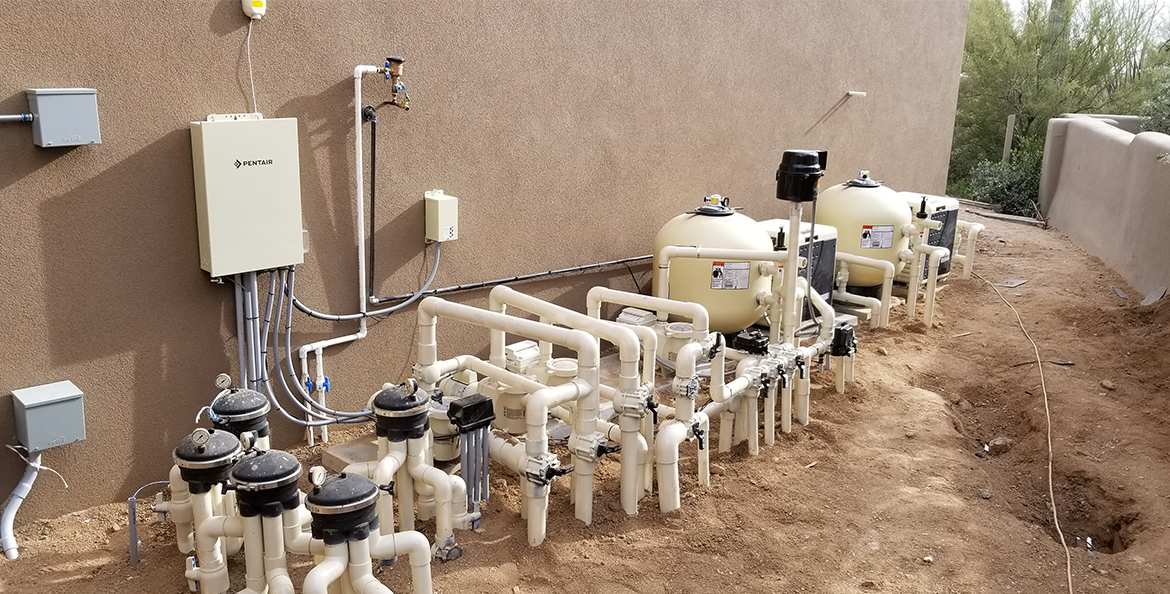Uncomplicated Well Pump Replacement: Rejuvenating Your Water Facilities with Confidence
Uncomplicated Well Pump Replacement: Rejuvenating Your Water Facilities with Confidence
Blog Article
Comprehending the Secret Parts of Effective Water Filtering Solutions

Significance of Water Filtration Equipment
Water filtering systems play a crucial duty in making sure access to tidy and safe alcohol consumption water by successfully removing contaminations and pollutants. These systems are important in attending to the growing problems over water high quality and the potential health threats connected with taking in polluted water. By utilizing numerous filtering mechanisms such as reverse osmosis, turned on carbon, and UV sterilization, water filtration systems can successfully eliminate unsafe substances like microorganisms, infections, hefty metals, and chemicals from the water supply.
In addition, water filtering systems help to boost the taste and smell of water by eliminating chlorine, debris, and various other pollutants that can influence its high quality. Water Softeners. This improvement in water quality not only makes it a lot more tasty but likewise urges individuals to consume an ample quantity of water daily, promoting far better hydration and overall health
Types of Filtration Components

Physical filters are developed to literally strain out impurities from the water. These filters can be made of products like ceramic, carbon, and even sand, and they work by trapping particles larger than the filter's pores as water travels through.
Chemical filters make use of various chemical procedures to remove impurities from the water. Instances consist of turned on carbon filters, which adsorb contaminations, and turn around osmosis membrane layers, which make use of stress to different impurities from the water.
Organic filters make use of living microorganisms like microorganisms or algae to damage down raw material and contaminants in the water. These filters are usually made use of in wastewater therapy plants or all-natural water filtration systems.
Comprehending the different sorts of filtration components is essential for selecting one of the most ideal water purification system for certain filtration requirements.
Function of Debris Filters
Debris filters play a crucial duty in water purification systems by successfully catching solid fragments put on hold in the water. These filters are normally the very first line of defense in a purification system, getting rid of larger particles such as sand, silt, dust, and rust before the water relocates with finer filtration phases. By capturing these sediments, the filters stop them from reaching downstream components, hence useful link prolonging the lifespan and performance of the whole system.
Disregarding this maintenance can lead to obstructing, decreased water flow, and jeopardized filtration performance. Overall, debris filters are vital components that add dramatically to the effectiveness of water purification systems.
Duty of Activated Carbon Filters
Playing a vital role in water purification systems, activated carbon filters are critical in removing contaminations and impurities from the water supply. These filters are developed to adsorb and catch a vast array of contaminants, including chlorine, unpredictable natural substances (VOCs), pesticides, and herbicides. The triggered carbon material has a big surface location, permitting for the reliable capturing of impurities via a process called adsorption. As water goes through the filter, the turned on carbon holds and brings in onto the impurities, making sure that the water that appears beyond is cleaner and more secure for consumption.
Activated carbon filters are highly reliable at enhancing the taste and odor of water by minimizing chemicals that can impact its high quality. Due to their versatility and reliability, activated carbon filters are a key part in making certain that water is detoxified to the highest possible requirements prior to reaching customers.
Recognizing Reverse Osmosis Systems
Reverse osmosis systems are advanced water filtering systems that employ a sophisticated process to get rid of contaminants and contaminations from alcohol consumption water. These systems work by using stress to the water, forcing it with a semi-permeable membrane layer. This membrane functions as an obstacle, allowing just distilled water molecules to go through, while obstructing larger molecules such as minerals, chemicals, and various other contaminations. Consequently, the water that appears on the various other side is substantially cleaner and more secure for consumption.
One trick advantage of reverse osmosis systems is their ability to eliminate a large array of contaminants, including heavy metals, liquified bacteria, solids, and viruses. This makes them very reliable in boosting the total quality and security of drinking water. Furthermore, reverse osmosis systems are reasonably low-maintenance and can be mounted under the sink or in a central filtration system, offering hassle-free accessibility to clean water throughout the home. In general, comprehending just how reverse osmosis systems function can help individuals make informed decisions about their water filtration needs.
Verdict
In conclusion, efficient water purification systems are essential for making certain secure and clean drinking water. By recognizing the function and duty of each element, people can make informed choices when choosing a water filtration system.
Water filtering systems play an see here essential duty in guaranteeing accessibility to clean and secure alcohol consumption water by efficiently getting rid of contaminants and contaminations. By using different filtration devices such as reverse osmosis, activated carbon, and UV sanitation, water filtration systems can successfully eliminate damaging materials like germs, infections, heavy metals, and chemicals from the water supply.
Debris filters play a critical role in water my sources filtering systems by properly catching strong particles suspended in the water (Water Treatment).Playing a crucial role in water purification systems, activated carbon filters are crucial in removing contaminations and pollutants from the water supply.Reverse osmosis systems are advanced water filtering systems that use a sophisticated process to eliminate pollutants and pollutants from alcohol consumption water
Report this page